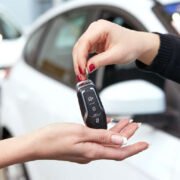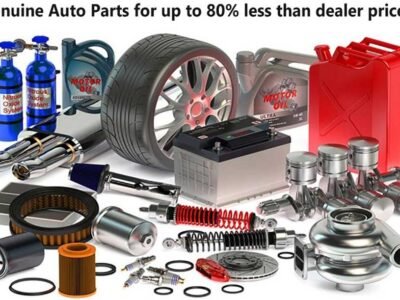When we purchase a vehicle, we expect it to be flawless. Automakers have factories that have been thoroughly tested, fine-tuned, and guaranteed with QA to produce products that work seamlessly. But unfortunately, this is not always the case.
If a vehicle is deemed a “lemon”, the manufacturer is required to refund the customer and take back the faulty vehicle. Manufacturers will then take these defective vehicles and try to sell them again.
But why on Earth would anyone want to buy a vehicle that was proven to have manufacturer defects?
Well, there are a few reasons.
For one, lemon law buybacks are usually sold at giant discounts. These rates can be thousands of dollars below MSRP. This means people can buy flashy sports cars for jaw-dropping prices, then attempt to fix the defect on their own – if the manufacturer didn’t repair it first.
But as you could imagine, this option comes with a degree of risk. In this post, we provide everything you need to know about purchasing a lemon law buyback.
What is a Lemon Law Buyback?
First and foremost, let’s talk about what exactly a “lemon law buyback” is.
A lemon is a vehicle that has met the respective state’s lemon law criteria. While qualifications vary from state-to-state, the basic principles of lemon law are:
- The manufacturer sold a defective vehicle to a consumer.
- The defect is substantial enough to impair the vehicle’s safety, value, or functionality.
- The defect was NOT caused by driver negligence.
- The manufacturer has made a reasonable number of failed attempts to fix the defect.
Once a vehicle is proven to meet the state’s criteria of a lemon, the manufacturer is required to “buy it back”. From here, they can sell the vehicle again – but they must specify to potential buyers that the vehicle is a “lemon law buyback”.
Is Every Lemon Law Buyback Defective?
Not necessarily. While most vehicles deemed “lemons” are products of manufacturer negligence, there are a few exceptions.
- The vehicle may have been deemed a lemon because certain parts were unavailable at the time of the repair.
- The manufacturer might have willingly bought the vehicle back as a courtesy to a long-time customer.
- The consumer may have misrepresented the defect to void the purchasing contract.
Another thing to keep in mind is most defects are fixable – it might just take multiple attempts and a hefty budget. Vehicles are ruled lemons because the manufacturer couldn’t repair it adequately after just a couple of attempts. It’s very possible your personal mechanic can completely fix the defect and get it to peak performance.
But keep in mind, you are assuming a certain degree of risk when purchasing a lemon law buyback.
The Manufacturer’s & Dealership’s Obligations
Manufacturer
When a manufacturer sells a lemon law buyback, they are legally obligated to:
- Specify the vehicle is a lemon law buyback – both on the title and registration certificate.
- Change the title to be in the manufacturer’s name.
- Put decals on the vehicle reading “Lemon Law Buyback” on the left door frame and the frame of the main entrance to the vehicle. If the vehicle is doorless (like a scooter or motorcycle) the decal must be placed on the left side.
Dealership
In states with lemon law for used vehicles, dealerships are legally required to:
- Provide the vehicle’s VIN, make, model, and year.
- Specify that the title of the vehicle is marked as a lemon law buyback.
- Provide a description of each defect reported by the vehicle’s original buyer.
- The results of all repair attempts made to the vehicle.
Most states do not have lemon laws for used vehicles. Some, like California, have very consumer-friendly laws to protect buyers from defective used vehicles sold at dealerships. If you live in this state, we recommend speaking with a lemon law attorney in California before purchasing a buyback.
The Bottom Line: Should I Avoid Buying a Lemon Law Buyback?
The easy answer to this question is: yes, play it safe and steer clear of lemon law buybacks.
Keep in mind, the manufacturer is not legally required to fix the defect after the vehicle is ruled a lemon. All they are required to do is disclose the vehicle is a lemon before they sell it.
Even if the manufacturer claims the defect is repaired, it’s never advisable to roll the dice on your own safety or the safety of other drivers to save a few bucks on a vehicle.
However, the truth of the matter is not all lemon law buybacks are bad. If you want to go this route, the most important thing you need to do is look into the nature of the original defect. If the defect is non-life-threatening – like a broken stereo system – the discount may be worth it to you.
For other defects, you may be confident your mechanic can repair the defect and make sure the vehicle is safe. But it’s important to note, for a vehicle to be deemed a lemon, the defect was officially ruled to be “unfixable”. Chances are you’re looking at an uphill battle to make the car safe – not to mention a money pit.
Ultimately the choice is yours. But you need to accept that purchasing a lemon law buyback is a risk – no matter how you look at it.
Author Bio:
Brian K. Cline’s Lemon Law Legal Group provides premier legal services. Our California lemon law lawyers aggressively and ethically force vehicle manufacturers to buy back defective and dangerous vehicles. Our team includes experienced trial lawyers with over 40 years of combined trial experience.


















Comments